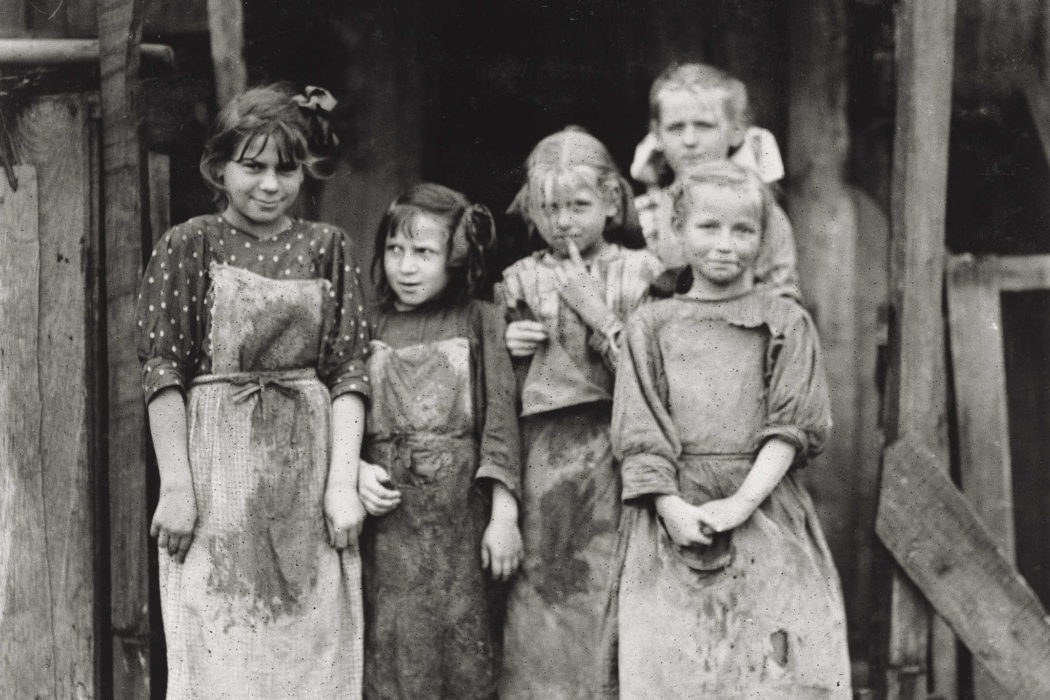DURING HIS STAY IN America 1912, ‘Abdu’l-Bahá addressed governance, peace, gender equality, and the role of religion. Yet one underreported subject that he spoke about often was children, and this in a country still struggling with child labor.
‘Abdu’l-Bahá was an advocate for the youngest members of society. When speaking to the International Peace Forum in New York on May 12, ‘Abdu’l-Bahá shed light on an often-neglected consequence of war. “Consider what is happening in Tripoli,” he said, “children, made fatherless; fathers, lamenting the death of their sons; mothers, bewailing the loss of dear ones.”
‘Abdu’l-Bahá had four daughters of his own, and attended many children’s gatherings in America. Whether listening to them sing, commenting on their work in classrooms, or writing age-appropriate prayers for them, he treated them with respect.
On April 19, ‘Abdu’l-Bahá was heading to the Bowery Mission in New York when a group of boys saw him and his Persian entourage and began to throw sticks at them. One of his hosts, Mrs. Kinney, explained to the boys that he was a “holy man” going to see the poor. The boys decided that they wanted to join him, but instead, Mrs. Kinney gave them her home address and told them to visit.

When they arrived, ‘Abdu’l-Bahá stood at the door and greeted each boy personally. The Reverend Howard Colby Ives explains: “Among the last to enter the room was a colored lad of about thirteen years. He was quite dark and, being the only boy of his race among them, he evidently feared that he might not be welcome.”
When ‘Abdu’l-Bahá saw him, Ives wrote, “His face lighted up with a heavenly smile. He raised His hand with a gesture of princely welcome and exclaimed in a loud voice so that none could fail to hear; that here was a black rose.” Ives continued: “The other boys looked at him with new eyes. I venture to say that he had been called a black — many things, but never before a black rose.”
“Every child is potentially the light of the world,” ‘Abdu’l-Bahá would argue, “and at the same time its darkness.”
“Training in morals and good conduct is far more important than book learning,” he said. “The child who conducts himself well, even though he be ignorant, is of benefit to others, while an ill-natured, ill-behaved child is corrupted and harmful to others, even though he be learned.” Of course, he commented, instilling both moral education and book learning in children would be preferable.
“Give them the advantage of every useful kind of knowledge,” ‘Abdu’l-Bahá wrote on the subject of child rearing. “Let them share in every new and rare and wondrous craft and art.” Yet he wasn’t suggesting a life of indulgence. “Bring them up to work and strive,” he added, “accustom them to hardship. Teach them to dedicate their lives to matters of great import, and inspire them to undertake studies that will benefit mankind.”






